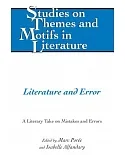"It is Well Known that human beings are complex, multi-faceted, contradictory, and full of surprises, but it takes a time of war or great upheaval in order to see it. That is the most
fascinating and the most terrible spectacle, she thought. The most terrible because it it the most real: you cannot take it for granted that you know the sea without having seen it during a
storm as well as during calm weather. The person who knows men and women is somebody who has observed them during an era such as this one, she thought. Only such people know themselves." From
Irene Nemirovsky, Suite francaise
Irene Nemirovsky's war narrative, Suite francaise, was discovered and published posthumously in 2004, more than sixty years after it was written. A Jewish Russian immigrant who had achieved
literary stardom during the twenty years she lived in France, Nemirovsky wrote her novel during the first years of the Occupation, before she was deported by the Nazis to Auschwitz, where she
died in 1942. When published, the book produced an immediate international sensation and has since been translated into more than twenty-five languages. While giving rise to a certain amount of
controversy, the novel has been widely acclaimed as a literary masterpiece providing a devastating portrayal of France's defeat and occupation.
In this work, the first critical monograph on Suite francaise, Nathan Bracher shows how, first amid the chaos and panic of the May-June 1940 debacle, and then within the unsettling new order of
the German occupation, Nemirovsky's novel casts a particularly revealing light on the behavior and attitudes of the French as well as on the highly problematic interaction of France's social
classes. It offers valuable insights on a number of subjects (in particular, the civilian exodus, the relations of French women with German soldiers, and socio-economic conflicts under the
Occupation) that, until now, have been too often neglected or misunderstood, while at the same time displaying a striking originality when compared to other discourses and narratives dating
from the same period. Bracher dispels a number of misconceptions that have arisen when Suite francaise has been assessed on the basis of biographical presumptions or with respect to current
imperatives of the "duty to remember."
Instead of viewing Suite francaise has been assessed on the basis of biographical presumptions or with respect to current imperatives of the "duty to remember."
Instead of viewing Suite francaise as a source of information about the author or as a simple instrument of memory, we can best understand the novel, Bracher argues, as a specifically
configured literary text whose voice can engage its readers in a critical dialogue with the dramatic era of the catastrophic fall of France and the ensuring Occupation. Contrary to certain
polemical interpretations, Bracher shows that Nemirovsky's searing novel not only makes a mockery of Vichy ideology but even adumbrates an ethic of resistance.





















